Passiontide: A Shift of Lenten Focus
- Blog Passiontide: A Shift of Lenten Focus
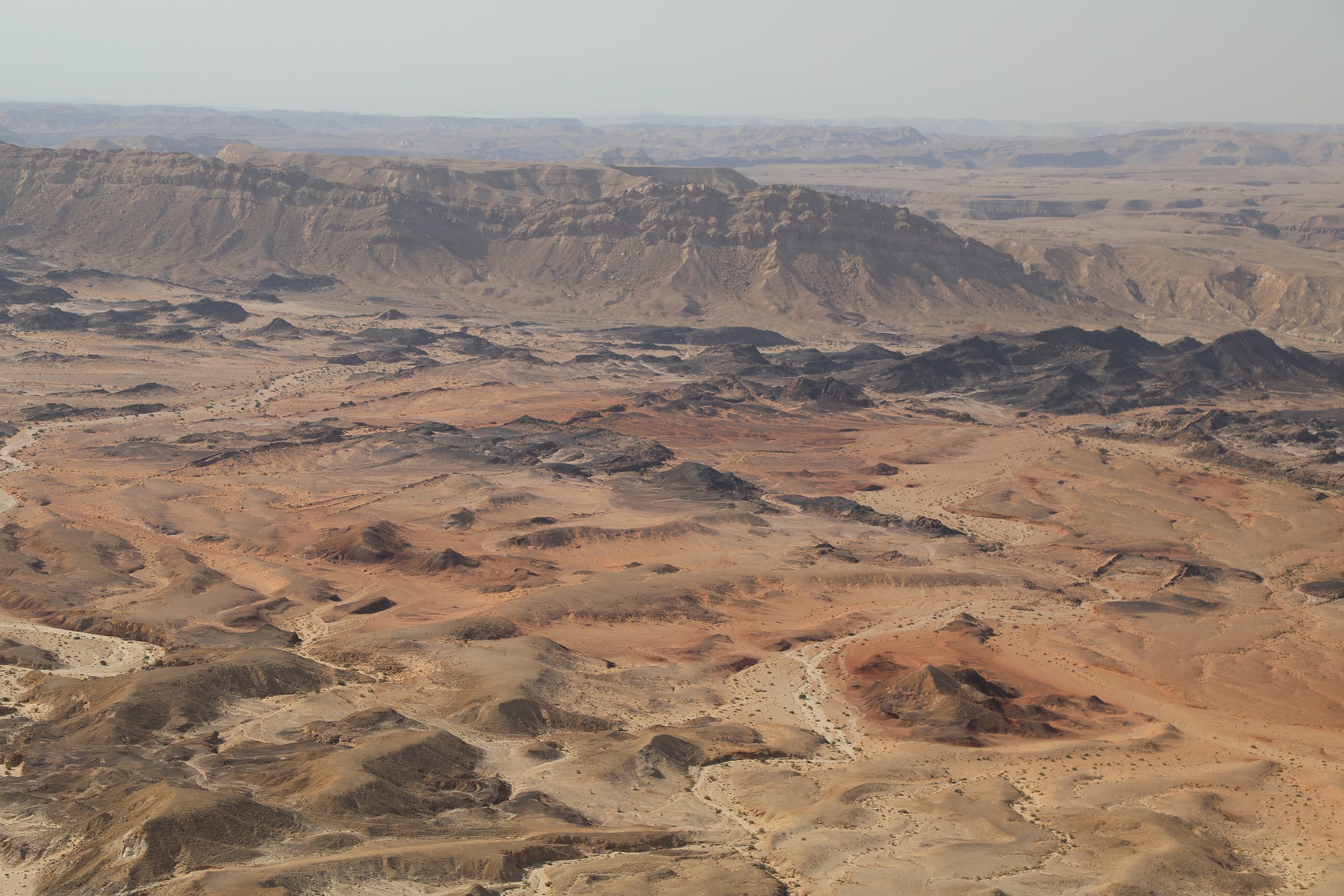
We've been walking the desert sands with Jesus the past few weeks, reflecting upon our own sinfulness and doing what we can to make reparation for our sins and the sins of others.
This Sunday, however, the Church shifts our focus from ourselves and our sinfulness to Jesus and His Passion.
Today, we celebrate Passion Sunday, the beginning of Passiontide.
Dom Prosper Gueranger says in The Liturgical Year, "the holy Church gives the two weeks which still remain before Easter to the commemoration of the Passion. She would not have her children come to that great day of the immolation of the Lamb, without having prepared for it by compassionating with Him in the sufferings He endured in their stead."
From this day until the fires of Easter Vigil are lit, every prayer, every lesson, every aspect of the liturgy draws our attention to the Passion of Our Lord, the one, sole thought of the entire Christian world.
As Dom Gueranger puts it,
During the four weeks that have preceded, the Church has been leading the sinner to his conversion; so far, however, this conversion has been but begun: now she would perfect it. It is no longer our Jesus fasting and praying in the desert, that she offers to our consideration; it is this same Jesus, as the great Victim immolated for the world’s salvation. The fatal hour is at hand; the power of darkness is preparing to make use of the time that is still left; the greatest of crimes is about to be perpetrated. A few days hence the Son of God is to be in the hands of sinners, and they will put Him to death. The Church no longer needs to urge her children to repentance; they know too well, now, what sin must be, when it could require such expiation as this. She is all absorbed in the thought of the terrible event, which is to close the life of the God-Man on earth; and by expressing her thoughts through the holy liturgy, she teaches us what our own sentiments should be.
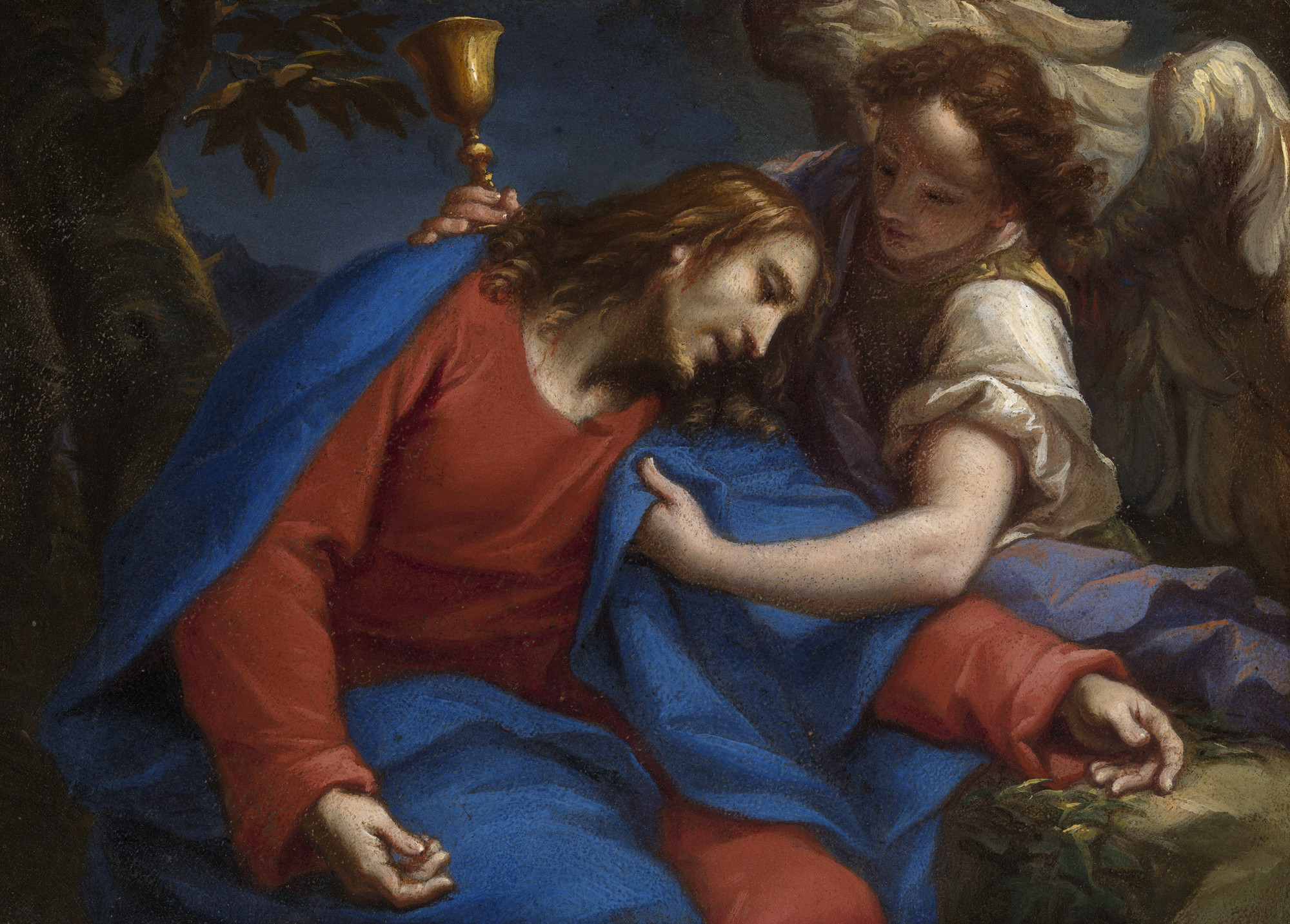
In her wisdom, the Church—and our God—wants more from us than just tears and sorrow.
She wants us to learn from the lessons Jesus teaches us in His Passion and Death. As Dom Prosper explains, Christ Himself wanted more than tears from the women of Jerusalem, who represent us all:
‘Weep not over Me; but weep for yourselves and for your children’ [St. Luke xxiii. 28]. It was not that He refused the tribute of their tears, for He was pleased with this proof of their affection; but it was His love for them that made him speak thus. He desired, above all, to see them appreciate the importance of what they were witnessing, and learn from it how inexorable is God’s justice against sin.
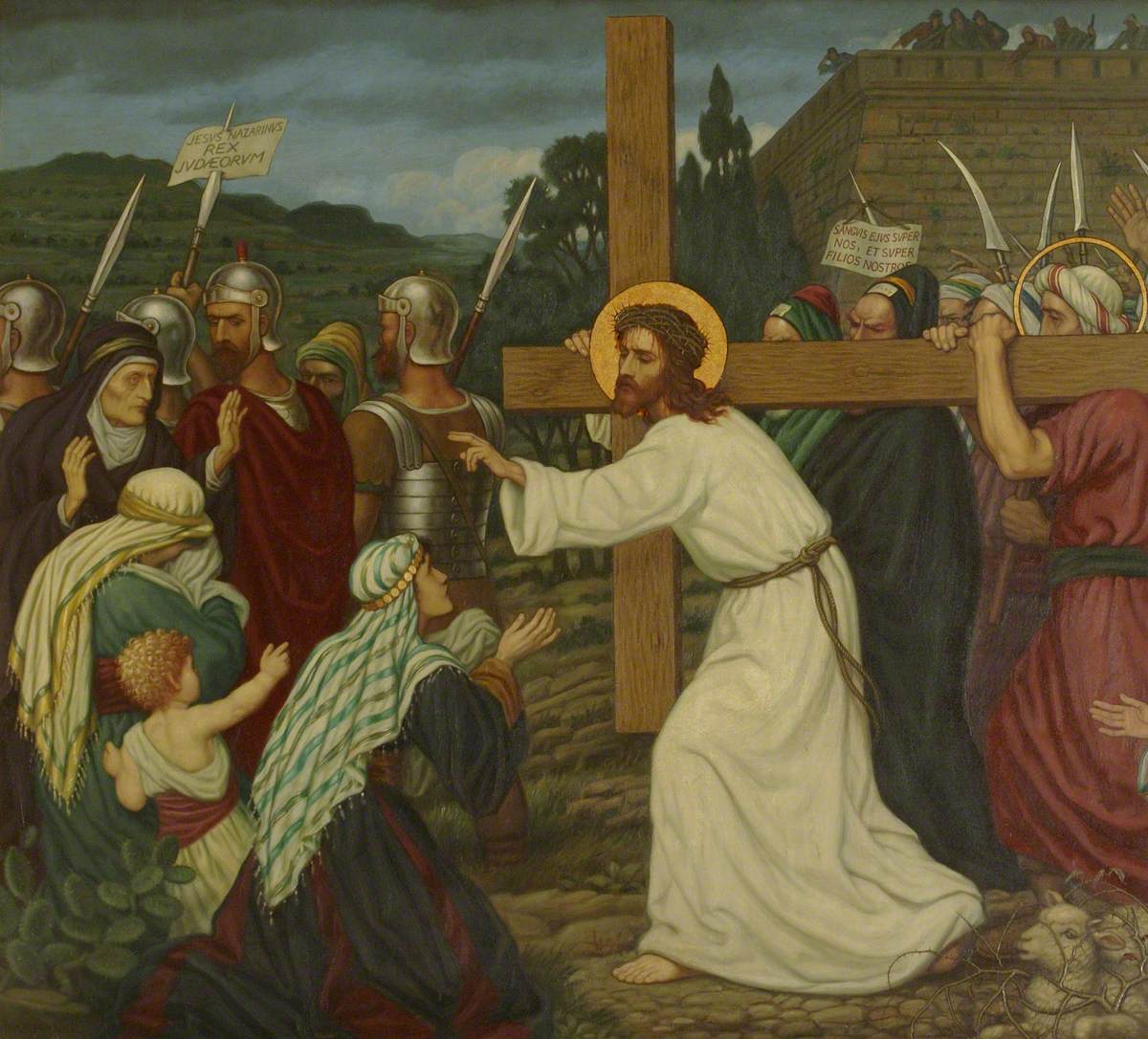
One of the most important lessons we can learn during this holy time is that sin separates us from God.
What better way to drive this point home than to remove the image of Christ and all that is holy from our sight?
The Church does this by veiling all the images she can from today until the Easter Vigil.
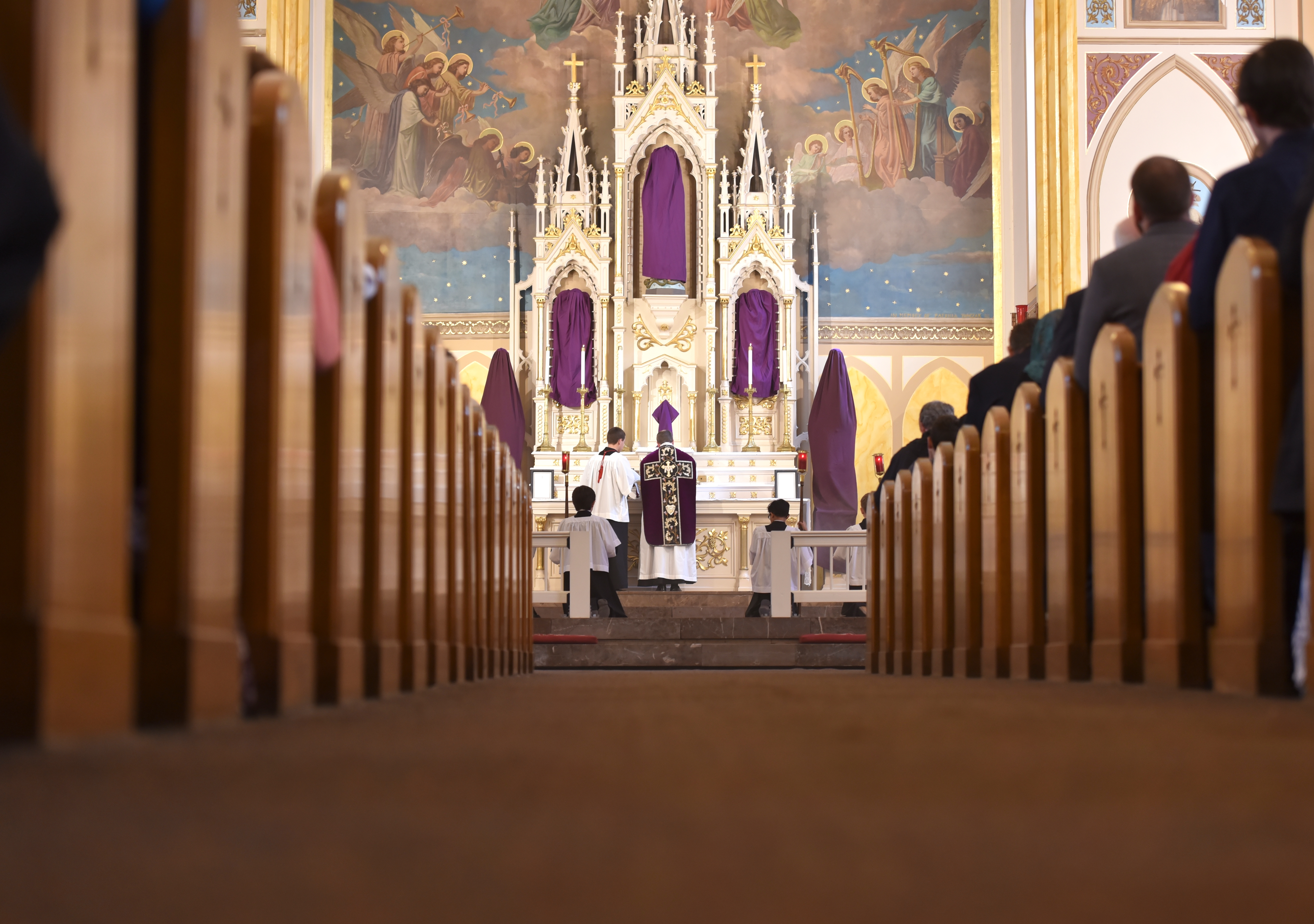
[T]he cross is hidden from the eyes of the faithful. The statues of the saints, too, are covered; for it is but just that, if the glory of the Master be eclipsed, the servant should not appear.
This can be confusing. The Church is pulling our focus to Christ, but then hiding Christ from us.
Why?
One reason is to remind us that the consequence of sin is the separation of the soul from God. The more we sin, the farther we move away from God. Without repentance, we eventually move so far away that we cannot even feel the warmth from the rays of His love.
What a painful thought.
This is the pain of Hell.
Knowing, for eternity, that you are forever separated from the God Who created you, Who gave you so many graces, and Who loved you so much, He sent His only Son to die for you on the Cross.
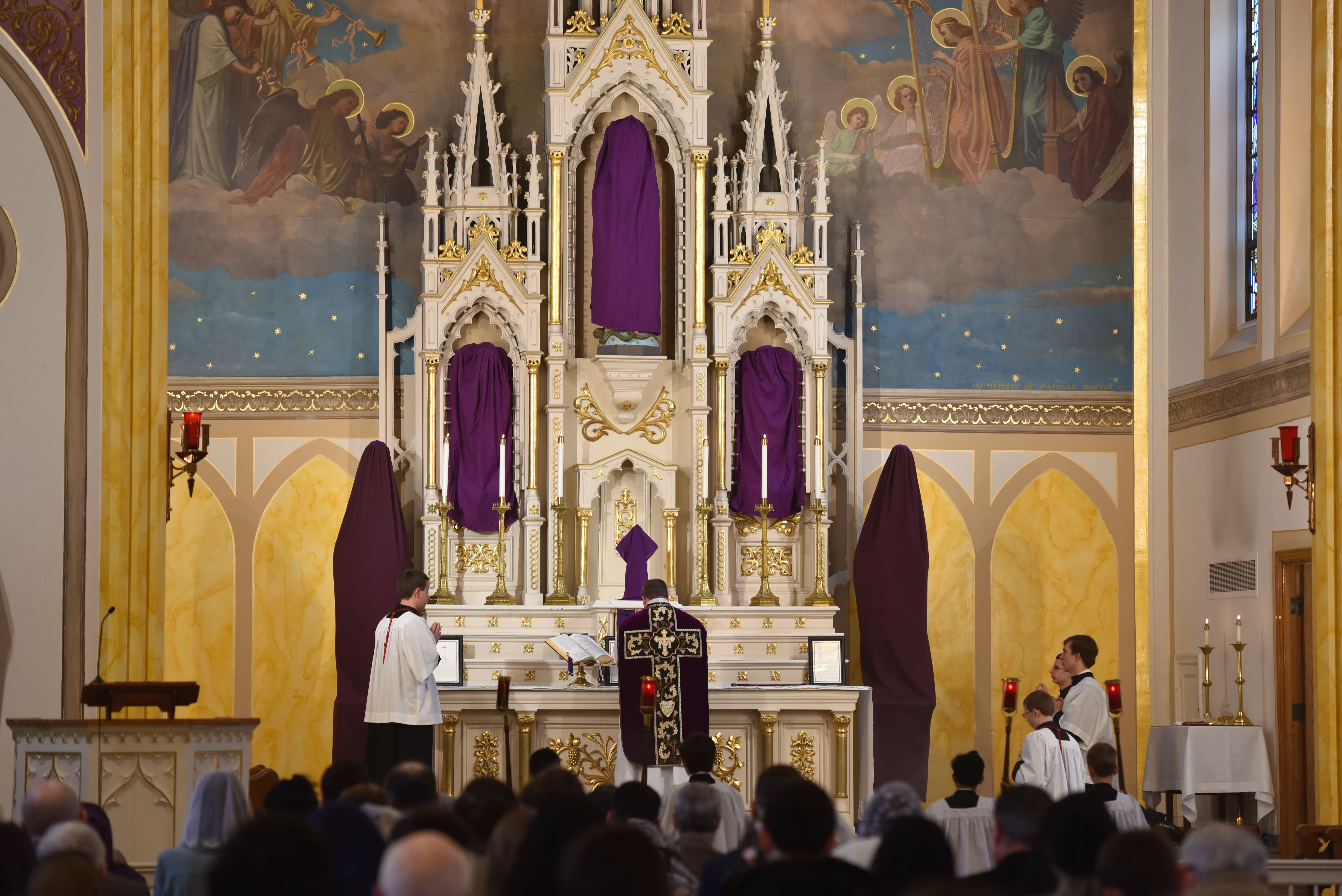
Everything around us urges us to mourn. The images of the saints, the very crucifix on our altar, are veiled from our sight. The Church is oppressed with grief. During the first four weeks of Lent, she compassionated her Jesus fasting in the desert; His coming sufferings and crucifixion and death are what now fill her with anguish. We read in to-day’s Gospel, that the Jews threaten to stone the Son of God as a blasphemer: but His hour is not yet come. He is obliged to flee and hide Himself. It is to express this deep humiliation, that the Church veils the cross. A God hiding Himself, that He may evade the anger of men - what a mystery! Is it weakness? Is it, that He fears death? No; we shall soon see Him going out to meet His enemies: but at present He hides Himself from them, because all that had been prophesied regarding Him has not been fulfilled. Besides, His death is not to be by stoning: He is to die upon a cross, the tree of malediction, which, from that time forward, is to be the tree of life.
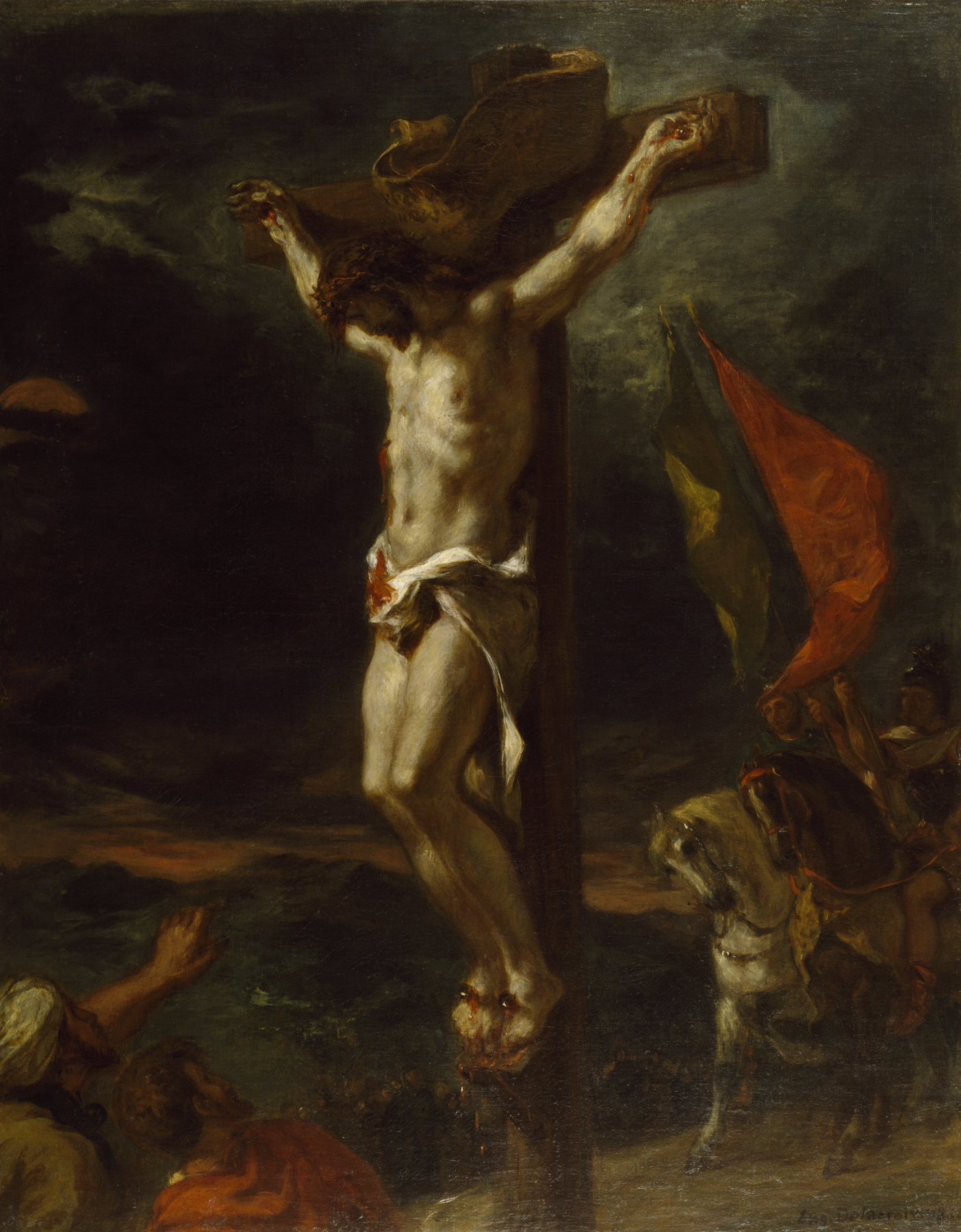
Let us humble ourselves, as we see the Creator of heaven and earth thus obliged to hide Himself from men, who are bent on His destruction! Let us go back, in thought, to the sad day of the first sin, when Adam and Eve hid themselves because a guilty conscience told them they were naked. Jesus has come to assure us of our being pardoned, and lo! He hides Himself, not because He is naked - He that is to the saints the garb of holiness and immortality - but because He made Himself weak, that He might make us strong. Our first parents sought to hide themselves from the sight of God; Jesus hides Himself from the eye of men. But it will not be thus for ever. The day will come when sinners, from whose anger He now flees, will pray to the mountains to fall on them and shield them from His gaze; but their prayer will not be granted, and they shall see the Son of Man coming in the clouds of heaven, with much power and majesty [St. Matt. xxiv. 30].
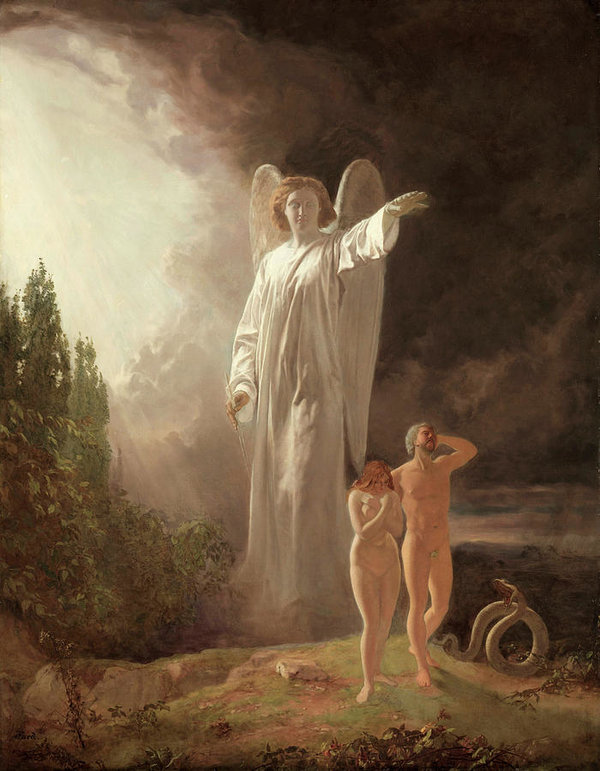
Yesterday, we celebrated Mary's "yes", which undid the "yes" of Eve.
Today, we shudder at the memory of the expulsion of Adam and Even from Eden, and try to learn the lesson that Christ wants to teach us from His Passion.
Dom Gueranger recommends we remember this during the celebration of the Mass:
In approaching, therefore, the holy Table, during this season of the Passion, the faithful must be absorbed in the remembrance of the Lamb that was sacrificed for us; they must keep this great truth uppermost in their hearts: that the divine Food which nourishes their souls was prepared on Calvary; and that, although this Lamb is now living and impassible, yet it was by His death on the cross that He became our Food. The sinner, reconciled to his offended God, must receive the Body of Jesus with sentiments of hearty contrition, and reproach himself, in all the bitterness of his soul, for having shed that precious Blood by his multiplied sins. The just man must make his Communion, and humble himself with the thought that he, too, has had too great a share in causing suffering to the innocent Lamb; and that if he now have reason to believe himself to be in the state of grace, he owes it to the Blood of the Victim who is about to be given to him for the increase of his spiritual life.
But this isn't the only lesson that Jesus wants us to learn from His Passion. Another essential lesson is how the just man dies.
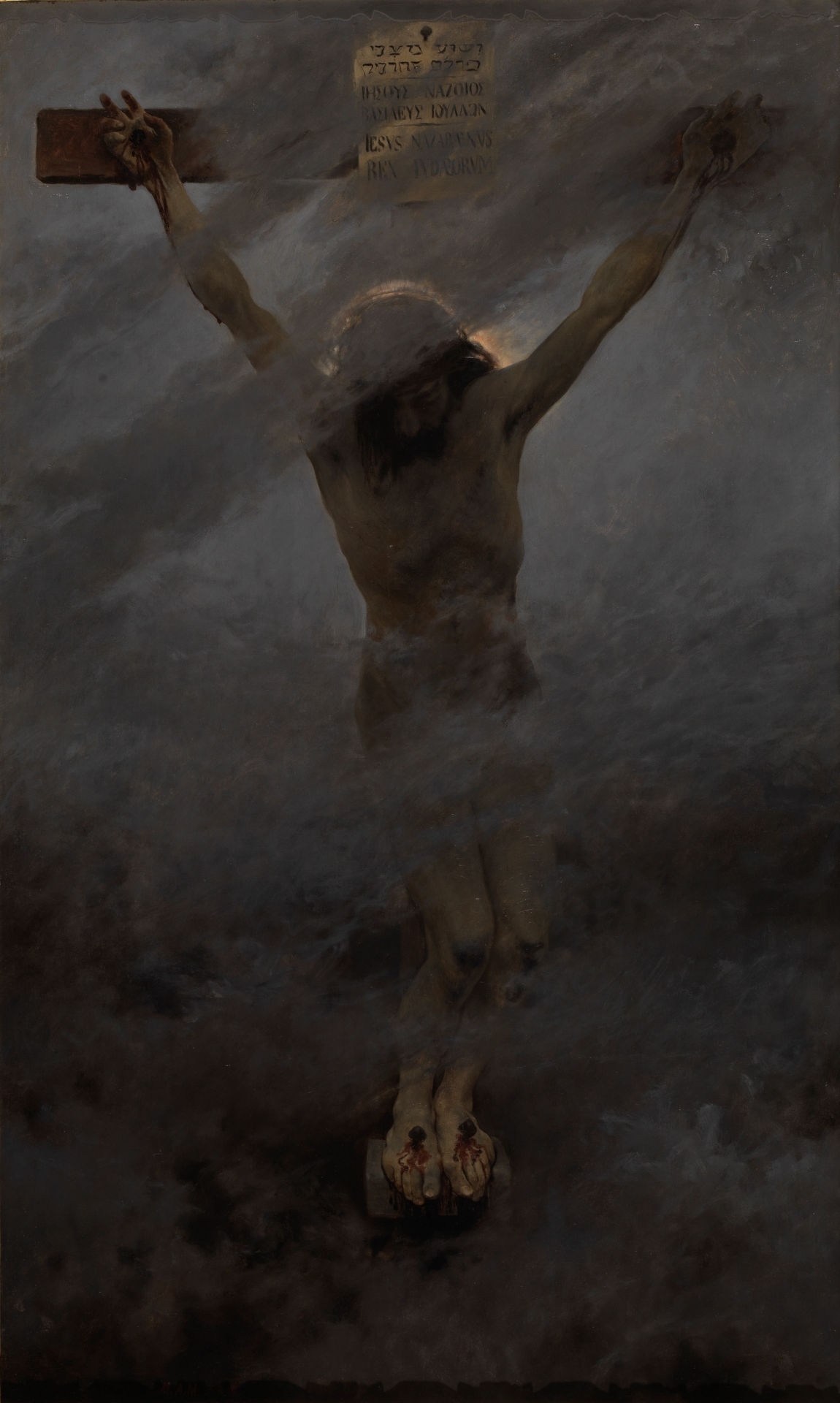
We spend much of our lives defending ourselves. Coming up with excuses. Trying to avoid suffering and taking the easy way out. But that isn't what Jesus did, and it certainly isn't what He calls His followers to do.
Christ's Passion is the Masterclass in Suffering and doing the will of God in all things. God calls us to not just watch and cry, but to internalize and, eventually, inevitably, replicate this lesson in our own lives.
Ecce Quomodo Moritur is the fifteenth responsorio for Holy Week in the Traditional Latin Mass. In this sublime motet, we meditate on the death of the just man, par excellence, dying at the hands of the evil in front of the indifferent.
Christ's Passion reminds us that it is not in this life that we will receive the rewards or justice our lives have merited.
In this world, we are called to pick up our crosses, handmade for each one of us. We are called to humbly and lovingly surrender and submit to the will of our God, Who suffered and died in the most horrendous way imaginable, on a cross, surrounded by thieves, betrayed by His followers and by those He came to save.
Let us remember, as this beautiful hymn by Jacob Handl says, how the just die.
Lord Jesus, give us the grace to learn from You, and to imitate You in all things, but most importantly, in your Passion.
Ecce Quomodo Moritur Justus
Text, Isaiah 57:1-2
|
Ecce quomodo moritur justus, In pace factus est locus ejus et in Sion habitatio ejus. Et erit in pace memoria eius. |
Behold how the Just One dies, In peace is his place and in Sion is his homestead. And his memory shall remain in peace. |
ACT OF OBLATION
I know, dear Jesus, that what thou askest of me is not the passing sentiment of a heart excited by the thought of thy goodness towards it. Thou hast loved me from eternity; thou lovedst me, even when I was doing nothing for thee; thou hast given me light to know my miseries; thou hast shielded me against thine own angry justice; thou hast mercifully pardoned me a countless number of times; thou art even now embracing me with tenderest love: and all these works of thy almighty hand have been but for one end—to make me give myself to thee, and live, at last, for thee. It is this thou wouldst obtain of me, by granting me this precious earnest of thy love, which I have just received. Thou hast said, speaking of this ineffable gift: ‘As I live by the Father, so he that eateth me, the same also shall live by me.’ [St. John vi. 58]. Henceforth, O Bread which came down from heaven! [Ibid.51.] thou art the source of my life. Now, more than ever, my life belongs to thee. I give it unto thee. I dedicate unto thee my soul, my body, my faculties, my whole being. Do thou direct and govern me. I resign myself entirely into thy hands. I am blind, but thy light will guide me; I am weak, but thy power will uphold me; I am inconstant. but thy unchangeableness will give me stability. I trust unreservedly in thy mercy, which never abandons them that hope in thee.
O Mary! pray for me, that I lose not the fruit of this visit. Holy angels! watch over this dwelling-place of your Lord, which he has so mercifully chosen: let nothing defile it. O all ye saints of God! pray for the sinner, unto whom he has given this pledge of his divine pardon.
Every year, New Liturgical Movement posts series of Passiontide images from around the world. It's a fun way to see how this beautiful tradition is kept in our Church. Click here to see the series of posts and photos.
Images: Pixabay; Agony in the Garden, Francesco Trevisani (public domain); Jesus Speaks to the Women of Jerusalem, Edward Arthur Fellowes Prynne (public domain); Passiontide photos by Jan Jelski, parishioner of St Mary's Catholic Church in Conshohocken, PA, used with permission; Christ on the Cross, Eugène Delacroix (public domain); Consumatum est, Jose Jimenez Aranda (public domain).
Quotes and Acto of Oblation from Dom Prosper Gueranger's The Liturgical Year in the public domain.
Related Content




Comments